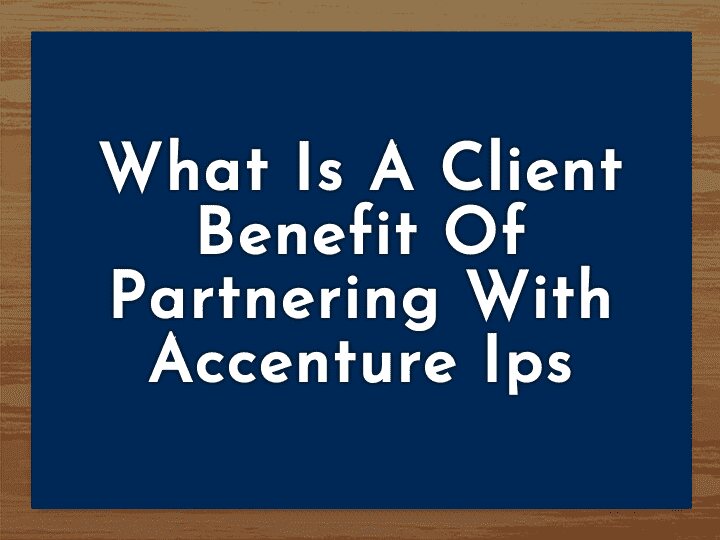In the realm of small business ownership, accounting plays a pivotal role in ensuring financial success and sustainability. While many entrepreneurs understand the significance of accurate bookkeeping, there are often hidden secrets and strategies that can enhance the efficiency and profitability of small business accounting. In this article, we will delve into these hidden secrets with a focus on Matt Oliver, a medium-sized business owner who has successfully implemented them in his operations.
The Importance of Small Business Accounting
Before diving into the hidden secrets of small business accounting, it is essential to highlight its overall importance. Accounting serves as the backbone of any business, providing valuable insights into financial health, performance, and growth potential. By maintaining accurate records of transactions, expenses, and revenues, entrepreneurs can make informed decisions, attract investors, and comply with legal and tax requirements.
Meet Matt Oliver: A Medium-Sized Business Owner
Matt Oliver is the owner of a medium-sized business that manufactures and sells eco-friendly home products. With a growing customer base and increasing sales, Matt realized the importance of optimizing his accounting practices to ensure sustainable growth. By adopting several hidden secrets of small business accounting, Matt has been able to streamline his operations, maximize profits, and gain a competitive edge in the market.
Unveiling Hidden Secrets
Automating Bookkeeping: The Key to Efficiency
One of the first secrets that Matt discovered was the power of automating bookkeeping processes. By leveraging accounting software and tools, Matt eliminated the time-consuming manual entry of financial data. Automation not only reduced errors but also improved accuracy and saved valuable time. With more time at his disposal, Matt could focus on business development, customer satisfaction, and other growth-oriented activities.
Embracing Cloud-Based Accounting Solutions
Another significant revelation for Matt was the adoption of cloud-based accounting solutions. By migrating his accounting data to the cloud, Matt gained remote access to financial records, allowing him to monitor his business from anywhere, at any time. Cloud accounting also offered enhanced security, data backup, and seamless collaboration with his accountant or financial advisor. This enabled him to make quick decisions based on real-time information, ensuring agility in his operations.
Utilizing Data Analytics for Business Insights
Matt realized the hidden potential in his accounting data when he started utilizing data analytics tools. By analyzing key financial metrics and trends, he gained valuable insights into his business performance, identifying areas of improvement and opportunities for growth. Through data analytics, Matt could make informed decisions on pricing strategies, inventory management, and customer targeting, leading to increased profitability and market share.
Minimizing Tax Liabilities through Strategic Planning
Tax planning became another secret weapon in Matt’s accounting arsenal. By engaging with tax professionals and staying updated on tax regulations, he strategically structured his business operations to minimize tax liabilities. Through deductions, credits, and incentives, Matt was able to optimize his tax position while remaining compliant with the law. This allowed him to allocate more resources to business growth and development.
Implementing Effective Cash Flow Management Strategies
Understanding the importance of cash flow, Matt implemented effective cash flow management strategies. By forecasting future cash inflows and outflows, he was able to anticipate potential challenges and plan accordingly. Matt negotiated favorable payment terms with suppliers, incentivized early payments from customers, and optimized inventory levels to maintain a healthy cash flow. This ensured his business had the necessary resources to meet its financial obligations and invest in growth opportunities.
Outsourcing Non-Core Accounting Functions
Lastly, Matt discovered the power of outsourcing non-core accounting functions. By delegating tasks such as payroll processing, accounts payable, and accounts receivable to external professionals or service providers, he freed up valuable time and resources. Outsourcing allowed Matt to focus on core business activities while ensuring accuracy and compliance in accounting operations.
Running a small business requires more than just a great product or service. Success hinges on effective financial management, and at the heart of it lies accounting. While many entrepreneurs understand the importance of maintaining accurate records, there are hidden secrets in small business accounting that can take your venture to the next level. In this article, we will unveil these secrets and explore how they can become the medium of success for your business.
The Power of Organization
One of the hidden secrets in small business accounting is the power of organization. Keeping your financial records in order is vital for maintaining clarity and making informed decisions. Implementing a system to track income, expenses, and invoices ensures that nothing falls through the cracks. Whether you choose to use spreadsheets, accounting software, or hire a professional, organized bookkeeping sets the foundation for success.
Cash Flow Management
Cash flow management is a critical aspect of small business accounting that is often overlooked. It’s not just about how much money you make but how effectively you manage it. By monitoring your cash flow closely, you can identify patterns, anticipate potential challenges, and make adjustments to ensure a healthy balance between inflows and outflows. Implementing strategies such as offering discounts for early payments, negotiating favorable terms with suppliers, and closely managing inventory can significantly impact your cash flow.
Leveraging Technology
In today’s digital age, embracing technology is no longer an option but a necessity. Small business owners can harness the power of accounting software, cloud-based platforms, and automation tools to streamline their financial processes. These tools can automate tasks like invoicing, payroll, and expense tracking, saving time and reducing the risk of errors. Additionally, cloud-based solutions offer the flexibility of accessing your financial data from anywhere, providing real-time insights to make informed decisions on the go.
Effective Tax Planning
Tax planning is an often-neglected aspect of small business accounting, but it can yield substantial benefits. By understanding the tax laws and regulations relevant to your business, you can identify legitimate deductions, credits, and incentives that can reduce your tax liabilities. Engaging with a tax professional or consultant can help you navigate the complexities of tax planning and ensure compliance while optimizing your tax position. By minimizing your tax burden, you can allocate more resources towards business growth and expansion.
Data Analytics for Business Insights
Small businesses often generate a wealth of data through their financial transactions. By harnessing the power of data analytics, you can gain valuable insights into your business performance, trends, and customer behavior. Analyzing key financial metrics, such as profitability ratios, customer acquisition costs, and lifetime value, can help you make informed decisions and develop effective growth strategies. Data analytics can also identify areas where costs can be minimized, revenue can be maximized, and operational efficiencies can be improved.
Strategic Financial Planning
Small businesses need a roadmap for financial success. Strategic financial planning involves setting realistic goals, creating budgets, and developing a roadmap for achieving those goals. By projecting revenue and expenses, you can plan for contingencies, set benchmarks, and track your progress. Strategic financial planning helps you stay focused, make necessary adjustments, and seize opportunities for growth.
Seek Professional Guidance
While small business owners often wear multiple hats, seeking professional guidance in accounting matters can be invaluable. Hiring a qualified accountant or bookkeeper can ensure that your financial records are accurate, compliant with regulations, and optimized for tax purposes. They can also provide valuable advice on financial decisions, offer insights into industry benchmarks, and help you identify opportunities for improvement.
Conclusion
Small business accounting holds hidden secrets that can pave the way for success. By embracing organization, managing cash flow effectively, leveraging technology, engaging in strategic financial planning, utilizing data analytics, and seeking professionalIn the realm of small business accounting, there are hidden secrets that can unlock significant benefits and propel a business towards success. Matt Oliver’s journey as a medium-sized business owner showcases the power of automating bookkeeping, embracing cloud-based accounting solutions, utilizing data analytics, minimizing tax liabilities, implementing effective cash flow management strategies, and outsourcing non-core accounting functions. By adopting these hidden secrets, small business owners can optimize their financial operations, gain valuable insights, and achieve sustainable growth. Embracing these practices is essential for entrepreneurs who aim to thrive in today’s competitive business landscape.








